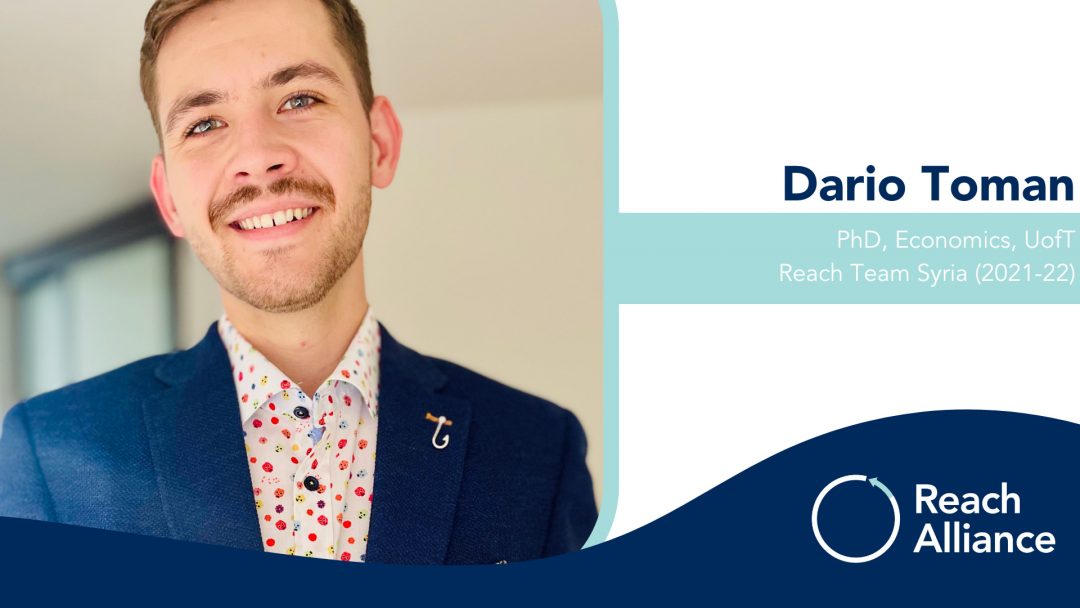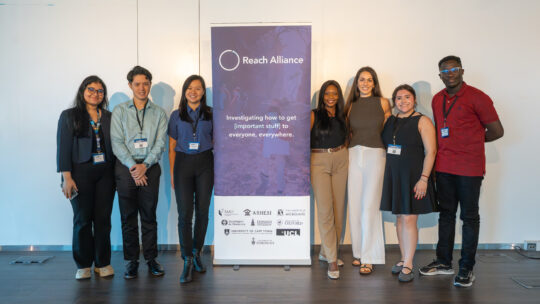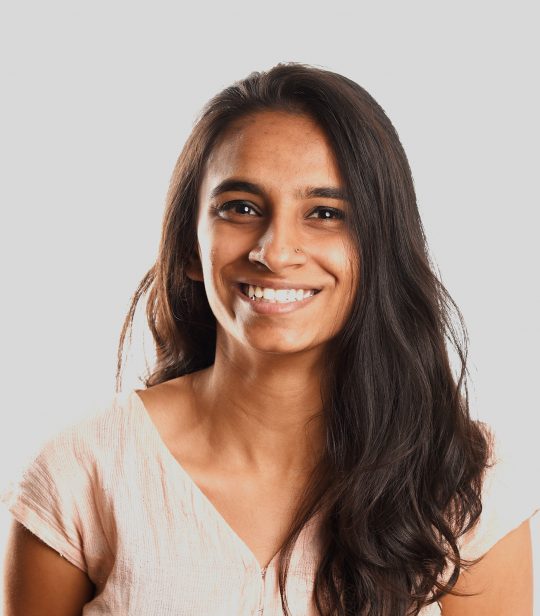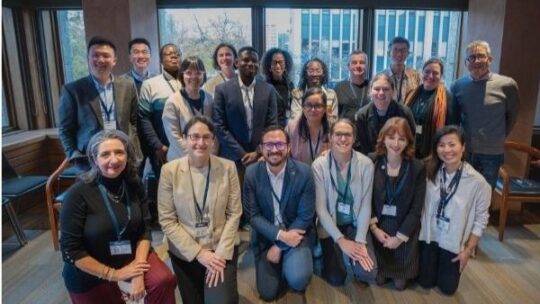Blogs: Alumni, Latest Blogs
Meet Dario Toman of Team Syria 2021-22: Syrian White Helmets: Manufacturing PPE in a Conflict Zone

Meet Dario Toman (PhD, Economics) from Team Syria
You’re currently completing your PhD in Economics at the University of Toronto. Can you tell us more about your work and what made you apply to the Reach Alliance?
I am a development economist by training. My research uses empirical methods to study how political and economic forces affect the wellbeing of individuals, with a particular focus on reducing violence. I am especially interested in identifying communities that are left behind by development processes and assessing policies that can prevent their marginalization. I was drawn to the alliance by its core mission of reaching the hardest to reach, which resonates closely with my research agenda. What’s more, I was excited for the opportunity to work with passionate researchers from a wide array of academic backgrounds.
As a recent alumnus, how will your experience in Reach inform your career path or opportunities you seek?
My time at Reach has renewed my commitment to interdisciplinary, policy-relevant research. While I plan to continue applying myself as an economist, I will seek out collaboration with experts from other disciplines, as combining insights from a variety of unique perspectives is key to tackling today’s biggest challenges.
What takeaways or skills [personal or professional] did you gain from your Reach experience that you are applying to your work or study?
I’ve learned a great deal from my peers, Reach mentors, and professional development workshops. Above all, I am walking away with an upgraded toolkit for communication and knowledge translation. Research must be heard for it to impact change and my experiences in the Reach Alliance have taught me effective strategies for relaying findings to key policymakers and stakeholders.
What is your fondest memory from your experience in Reach?
Spending time with good people. Whether it was an early-morning workshop or a late-night social, the conversations I had with fellow researchers, mentors, and staff always left me inspired and eager to learn more. Being a part of this vibrant, passionate community has been a great privilege.
What tips or words of encouragement would you give to someone who is interested in applying to the Reach initiative?
Do it! Take a look at past case-studies to understand the work that the researchers do – I can guarantee that you will be inspired. It will also be clear that joining the alliance is a big commitment. Make sure that you will have time to dedicate to your work as a researcher, to ensure that you get the most out of your time at Reach. While it is a big undertaking, it is absolutely worth it!
Last month, you presented your newly published research and participated in a panel on localization and co-creation at the Reach Researcher Conference. Can you share more about your experience and insights from your discussion?
I learned a lot about effective localization from discussions and feedback I received about our case study. Moreover, the panel moderated by Professor Joe Wong was especially rewarding, as it brought together findings from vastly different settings, creating cross-cutting insights for policy recommendations. Identifying patterns across our three case studies cemented my understanding of the role that local actors play in humanitarian interventions, while also sparking new questions to address in future research.
As an academic, were there any highlights/key takeaways from the Reach Researcher Conference that can be applied to your work?
For me, one key takeaway from the Reach Researcher Conference is the need to expand how we evaluate successes and failures. Well-designed programs can be harnessed to build stronger communities and institutions, even when these effects are often not the headline targets of the intervention. Whether it be involving local actors or amplifying marginalized voices, successful projects can create virtuous cycles that address historical injustices and strengthen societies. Although they are hard to measure, these outcomes are key pillars of sustainable development and must not be overlooked.



